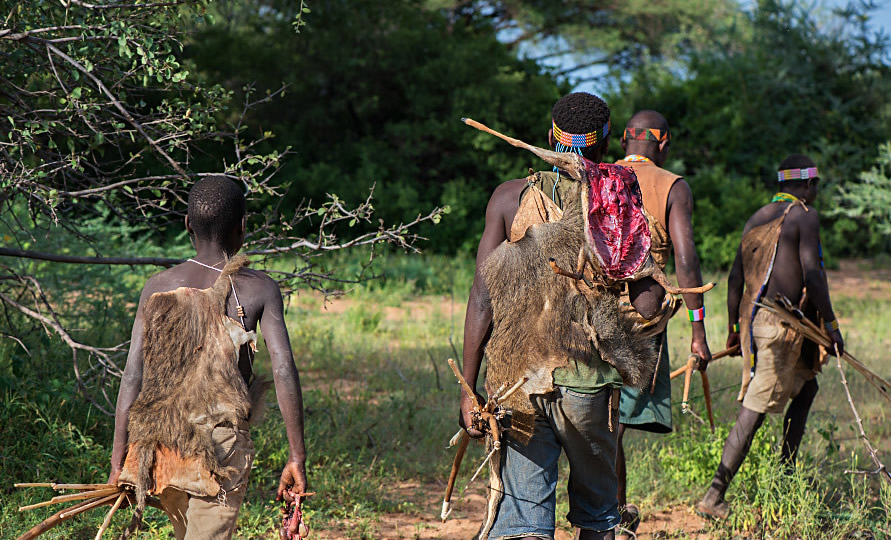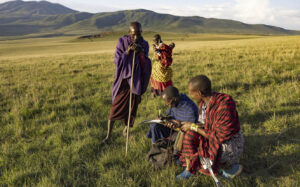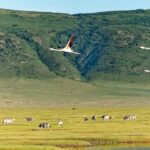
Tanzania is an African country that prides itself on a rich blend of cultures and traditions that are influenced by African, European, Arabian, and Indian. The people of Tanzania are generous and welcoming, yet also conservative. They are hospitable but highly value respect for their culture. With over 120 tribes and a variety of religions, Tanzania is one of the few African countries where religious harmony is widespread. The most prominent religions in the country are Christianity and Islam, while minority religions include Buddhism and Hinduism. However, Zanzibar Island and Pemba Island are mainly dominated by Muslims, who make up almost 98% of the islands’ population.
Tanzanian cultural tourism emerged as a way to empower rural communities and allow them to share in the benefits of the tourism industry. The core idea was to ensure that local communities directly profit from visitors who come to explore their unique areas.
Cultural tourism offers a wonderful opportunity for local people to showcase their traditions, beliefs, and way of life. They can guide tourists to sacred sites, share their daily routines, and even demonstrate their traditional crafts. The income generated from these activities is then used to fund vital development projects, such as building schools, healthcare facilities and improving infrastructure.
Ready to embark on a journey of discovery? Tanzania is home to a treasure trove of cultural experiences, each offering a unique glimpse into the heart and soul of its people. Let’s explore some of the most captivating destinations where you can immerse yourself in their traditions, rituals, and daily life.
Eyasi
Lake Eyasi is home to the Hadzabe Bushmen, one of the last remaining hunter-gatherer communities in Africa. They have made the area around the lake their ancestral hunting grounds for centuries. Joining the Hadzabe on day tours or longer safaris offers an incredible opportunity to experience a way of life that has largely disappeared from the rest of the world. Imagine joining them on a morning hunt, witnessing their skill with bows and arrows, or learning about their traditional methods of gathering honey and foraging for food. You can even experience their vibrant cultural dances, adding another layer of excitement to your tour.
Masai land

Masai People
The Maasai, one of the world’s remaining pastoralist communities, are adapting to the 21st century at their own pace. Experience their rich culture in a variety of ways:
Engaruka, a fascinating “lost city” nestled in the shadow of the Great Rift Valley, showcases the Maasai’s innovative approach to agriculture. Here, they practice traditional herding alongside irrigation farming, demonstrating their adaptability.
Mkuru, near Arusha National Park, offers a glimpse into the Maasai’s nomadic lifestyle. Enjoy a brief camel trek with local Maasai guides and explore the nearby Ol Donyo Landaree, a towering rock formation offering stunning views.
Southern Pare Mountains
Embark on a journey through the remote mountains of northern Tanzania accompanied by local farmers. Explore the traditional villages of the Pare people and immerse yourself in their rich culture.
Choose from a variety of safaris, ranging from half-day trips to three-day guided hikes, offering a unique opportunity to experience the Pare people’s way of life.
Discover the hidden Mghimbi Caves, which were a secret hiding place during the era of slave raids. Continue your journey to Malameni Rock, where human sacrifices were performed to appease ancient evil spirits until the late 1930s.
Venture into the captivating Ikongwe Village, believed by the locals to be a gift from heaven. This village is surrounded by stunning mountain terraces and picturesque waterfalls.
Meru
Just minutes’ drive away from the vibrant city of Arusha lie places that seem to have existed decades ago. Visitors can explore the WaArusha and WaMeru peoples, who are adapting to contemporary ways of life. Here, you have the opportunity to meet traditional healers, purchase local foodstuffs and handicrafts from cooperative artisans or women-owned businesses, and learn more about agriculture and animal husbandry.
Kilimanjaro
Combine a hike to the summit of Mount Kilimanjaro, the highest mountain in Africa, with a visit to the remarkable WaChagga community. Experience their rich tradition and modern art, culture, and unique homes.



